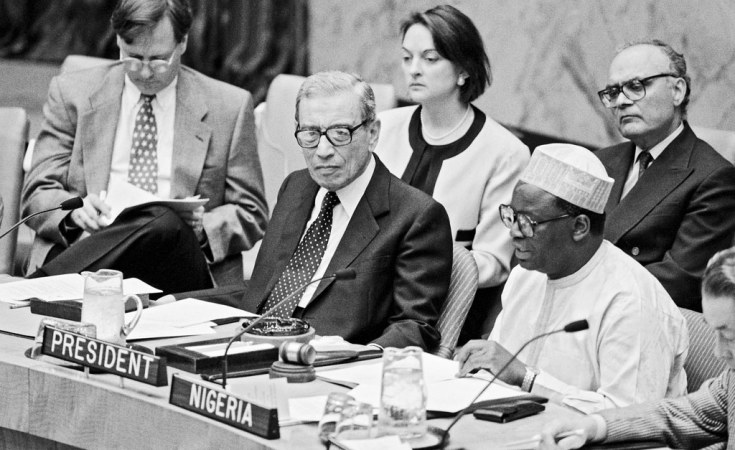Washington, DC — The MPLA government and Jonas Savimbi's armed movement, Unita appear ready for a new effort at peace talks to end Angola's almost 30-year civil war, United Nations Under-Secretary-General and Special Advisor on Africa, Ibrahim A. Gambari told reporters Monday. "I went to Angola to persuade Savimbi to come to the table and it appears to be working."
Gambari spent a week in Angola in early December, holding intense talks with government officials, Unita leaders, Unita dissidents, and various representatives of civil society. Gambari said the UN's "two-pronged strategy" - seeking improved relations between the parties while keeping sanctions on Unita in force, finally achieved some results
"The breakthrough came when the [Angola] government said to the UN: 'Assume the role of mediator.' There is now a window of opportunity."
"We are thinking of using some governments from neighboring countries and some from outside of Africa," in a new peace effort, said Gambari. He declined to name specific governments but many observers think South Africa and Nigeria, both of whom have been pressuring the MPLA to talk, will figure prominently in any new effort. Church and civil society are also expected to play a role in getting new talks underway. Gambari feels, however, that the church should help facilitate talks rather than mediate.
Gambari has reportedly told the UN Security Council that Angola's situation is still "fragile" and has urged caution in defining any new UN role.
Gambari was the keynote speaker at the opening session of a Senior Leader Seminar Monday organized by the Africa Center for Strategic Studies in Washington,DC. The seminar, which ends February 14, has brought together more than 100 top civilian and military leaders from 48 African nations to discuss civil-military relations and security issues affecting Africa.
The Africa Center, part of the National Defense University, held its first Senior Leader Seminar in Dakar, Senegal in November 1999. Its stated purpose is support of "democratic governance in Africa by offering senior African civilian and military leaders rigorous academic and practical programs in civil-military relations, national security strategy, and defense economics."
There are about seventeen ongoing conflicts in Africa "at varying levels and degrees of intensity of violence," Gambari told participants. "The nexus between peace and development is real," he said, calling for "new partnerships" between private business and African governments to defeat poverty, the HIV/Aids pandemic, and "wars and conflicts [that] have facilitated the pillage of resources and destroyed the hopes of many and rolled-back the meagre development gains that Africa has thus far made."


